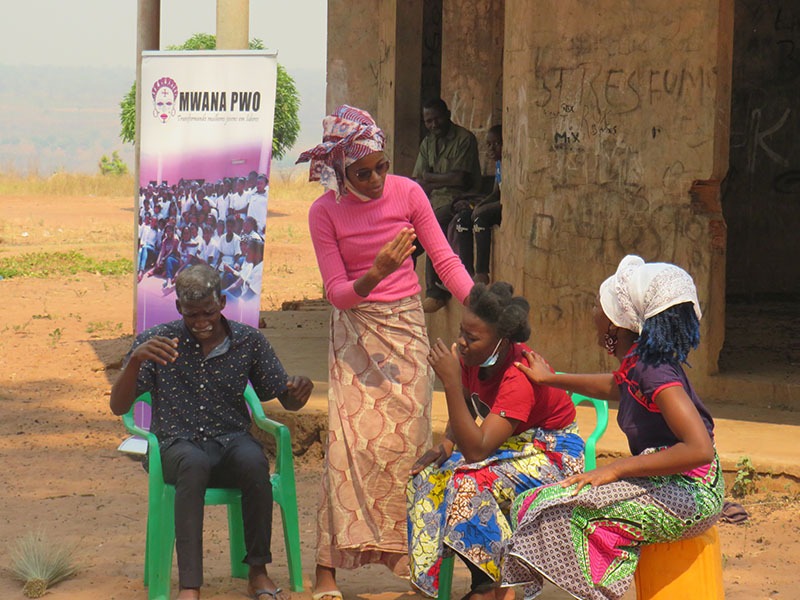
Challenging misconceptions on SRHR
59- 79% of girls in the Eastern province of Lunda Sul in Angola fall pregnant before their 18th birthday based on statistics from the 2015-2016 Multiple Indicator and Health Survey. Taboos related to adolescent sexuality and use of contraceptives, cultural norms and practices that promote teenage motherhood, limited health services, sexual exploitation and violence, and inadequate information regarding sexual and reproductive health are all contributing factors to the high rate of teenage pregnancy. The socio economic and political consequences of teenage pregnancy are numerous. Within the social sector, adolescent mothers often abandon school due to bullying and discrimination from both their peers and teachers, limiting their educational and work prospects and trapping them and their families in an interminable cycle of poverty. Iracelma Manguvo is working to break this cycle.
“Teenage pregnancy is a big issue in our community. The reality is that access to family planning information and services is limited. Girls and young women use untested methods such as a mixture of Coca-Cola and ibuprofen to prevent pregnancy because in hospitals nurses do not attend to us professionally. We are discriminated against because of our sexual and reproductive health choices. Our group has interacted with the Provincial office of the Ministry of Health regarding this issue and according to them, hospitals provide sexual and reproductive health services to young women and girls yet we are often turned away. There is a disconnect between policy and practice “, said the 19 year old sexual and reproductive health and rights (SRHR) advocate.
Zooming in on her motivation to champion the rights of young women and girls, Iracelma recognized the central role her strict upbringing had on her convictions. “As a young child I often questioned behaviours and words which I felt were derogatory towards women. I never understood why girls were limited to domestic work while boys could be whomever they chose. Why girls´ movements were unjustifiably controlled while boys had greater liberty. Nevertheless, I could not question this. We were raised to accept whatever our parents said or did to us. Over the years, I learnt to speak up against injustices and with leadership training I acquired the knowledge and skills to defend and advocate for the rights of girls and young women, ” said Iracelma during an interview.
Speaking on the difficulties she has encountered, Iracelma noted that government officials place minimal value on the contributions of young people. “Our political leaders are unreachable most of the time. They have little time and zero political will to interact with us. It is really frustrating”, she said. Consequently, according to Iracelma, the leaders have limited knowledge of the lived realities of girls and young women leading to unrealistic policies and negative health outcomes for this specific group.
Additionally, the young leader highlighted how cultural norms and traditional practices coupled with misconceptions regarding sexual and reproductive health create a barrier between the SRHR youth advocates, girls and young women. “We had an activity on menstrual health management. One of the girls was banned from participating in our activities , after sharing the lessons with her mother. According to her mother, we were teaching her immorality. What is immoral about menstrual health? “.
Iracelma is in 12th grade at José Manuel Salucombo High School in Saurimo and is an alumna of the Mwana Pwo´s 2021 Brilha! Leadership training program in sexual and reproductive health and rights. She is the only female out of eight members of the Saurimo Municipal Youth Council where she serves as the Secretary for Information and Communications representing Associação Mwana Pwo.
